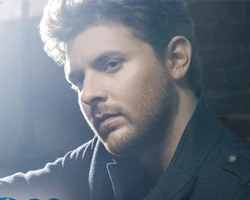

The radio-friendly "Everybody Wants to Rule the World" marked the band's breakthrough in the United States both this single and its follow-up, "Shout", reached number one in the US. The album reached number two on the UK Albums Chart and spawned five commercially successful singles: " Mothers Talk" (UK #14), " Shout" (UK #4), " Everybody Wants to Rule the World" (UK #2), " Head over Heels" (UK #12), and " I Believe" (UK #23). Songs from the Big Chair was released on 25 February 1985 with a black and white photograph of Orzabal and Smith on the record cover. The most straightforward song on the album, "Everybody Wants to Rule the World" was completed in about a week and the last track recorded for the album. Initially not very interested to work on it, Orzabal was convinced to write a song based on those two chords and eventually added the chorus line. Near the end of the completion of the album Roland Orzabal played two simple chords on his acoustic guitar that was the foundation of the song " Everybody Wants to Rule the World". "Broken", featuring a straightforward rock sound, was a reworking of an earlier song and a live version is repeated at the end of "Head over Heels", while the largely instrumental "Listen" has been described as a symphonic piece. " I Believe" was influenced by the songwriting of Robert Wyatt. The songwriting uses many different styles and influences, particularly progressive rock as a cited main influence on the album. The song " Shout" became a central work during the recording of the album, and the band and producer Chris Hughes spent months working on that track alone. These songs, as well as "We Are Broken", were all performed on Tears for Fears 1983 tour. " Mothers Talk" was released months before the album as a single. Early songs written for the album included " Head over Heels" and "The Working Hour".

Conceptually and musically, it was a development of the band's previous album The Hurting, re-introducing guitars to their electronic sound and an overall lighter approach than before. The album was recorded at The Wool Hall in 1984.

While a mostly-instrumental track called "The Big Chair" (which includes dialogue samples from the film) was released as the B-side of "Shout" in 1984, it was not included on the album (but was available on its "special limited edition" cassette version, released in the UK in 1985). The first song written for the album was "Head Over Heels", which the band played live during a tour undertaken between the two albums. The band started to generate new material around the beginning of 1984. We found the need to be more outgoing on The Big Chair". In an interview for the 2006 deluxe version booklet, Curt Smith noted that "We were very introverted on The Hurting it was a very dark album. The title of the album reflects the band's view of being targeted by a hostile English music press at the time. Originally, the album was to be titled The Working Hour, but Roland Orzabal fought to change it to Songs from the Big Chair, which was derived from the 1976 television film Sybil about a woman with multiple personality disorder who only feels safe when she is sitting in her analyst's "big chair".


 0 kommentar(er)
0 kommentar(er)
